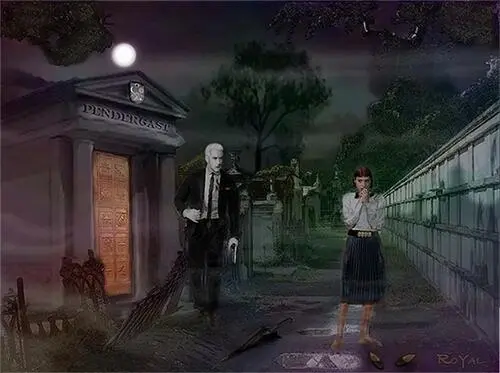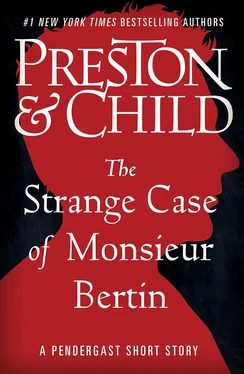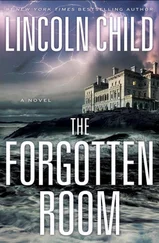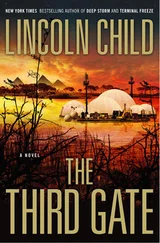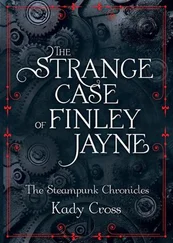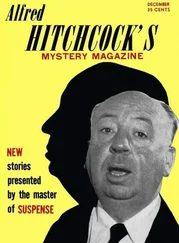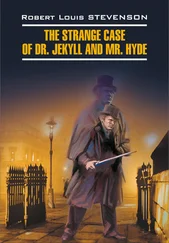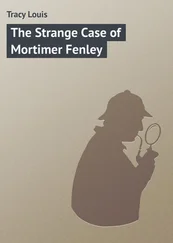As he played the beam around, Constance abruptly realized why the space had looked familiar to her: it was similar to the sub-basements of the mansion at 891 Riverside Drive — which had, she knew, been built to replicate the old layout of the house on Dauphine Street.
“I thought this was sealed up and lost forever,” said Pendergast in a whisper. “But now... now I begin to understand. Comstock was a magician, and his shows sometimes involved terror, injury, or worse to members of his audience.” His silvery eyes gleamed in the reflected light, registering vast surprise. “I can see now why he insisted on building that mausoleum in St. Louis Cemetery Number One when the family had a perfectly satisfactory and far more private crypt here. And it wasn’t, my dear, to bury the dead.”
“So Comstock needed an escape route?” said Constance.
“Exactly,” Pendergast said, nodding slowly. “If a mob came for him, this was his back door. How ironic that the fire that destroyed Rochenoire happened after his death.” He turned to Constance. “This must be the way Bertin and a number of servants managed to escape. Strange he wouldn’t speak of it to me — or explain how he knew of its existence.”
As he spoke, his flashlight had been roaming amid the silent tombs. Now it stopped abruptly. “What’s this?”
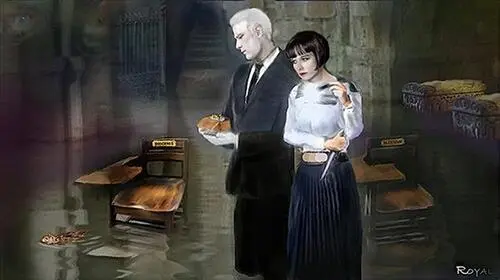
Near one wall, away from the procession of tombs, two school chairs with attached desks sat in the water.
Wordlessly, the two approached them. Constance saw that one desk was labeled Aloysius and the other Diogenes .
At the sight of the name of Pendergast’s brother, Constance felt her grip tighten on the stiletto.
“Exact replicas of the chairs we sat in when Monsieur Bertin gave us our lessons,” Pendergast said.
He moved toward them. And now, Constance saw that on the desk marked Diogenes sat a little toy box.
Wading over to the desk, Pendergast picked up the box and opened it. Constance came up beside him and looked.
The flashlight beam illuminated a small, dimpled pillow of white satin, on which were nestled two cut gemstones, one a cloudy blue, the other greenish brown.
Holding the light close, Pendergast examined the stones. “I believe one is a milky aquamarine, and the other a rare dravite tourmaline... How peculiar. I’m not sure I understand the significance of this.”
Even as he was speaking, Constance felt a most awful chill crawl up her spine.
“I do,” she said.
Pendergast turned to her in the dim light.
“Those two stones are exactly the color of your brother’s eyes .”
Pendergast gave a small intake of breath. Then, a long silence grew in the sepulchral space, disturbed only by the sound of dripping water and the squeaking of invisible rats.
“I see it now,” said Pendergast, his voice cold. “I see it very clearly. The elaborate setup, the malevolent treasure hunt. And the death of Bertin: no doubt that served as an amuse-bouche. This is Diogenes — announcing his return.”
In the long silence, Constance had been thinking. Now she almost hesitated to speak. “His return, but... for what?”
Pendergast did not speak. Instead, he took her hand. Much more quickly now, he led the way out of the crypt, splashing along the quarter mile of passage and up the winding staircase. Helping Constance out of the tomb, he pushed the bronze door closed behind them and they exited the mausoleum. They stood in the night, the rain having ceased, the cemetery now filled with a low-lying mist. Only then, in the relative safety of the surface, did he turn to answer her question.
“The final reckoning.”
